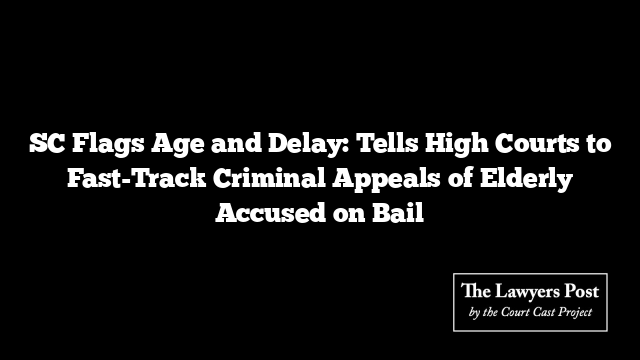In a quiet but consequential message to the High Courts, the Supreme Court has urged a shift in how criminal appeals are prioritized — especially when the accused are not behind bars but behind the veil of old age.
While the standard practice leans toward hearing appeals of those currently imprisoned, the top court has emphasized the need for balance. It pointed out a glaring gap: elderly convicts on bail, some staring at the dusk of life, waiting years — sometimes decades — for their appeals to be resolved.
The bench of Justices Abhay S Oka, Ahsanuddin Amanullah, and AG Masih drove the point home through a case dating back to 1989 — a 36-year-old matter from Madhya Pradesh. In it, the High Court had modified a murder conviction to a lesser charge and let the aged accused walk free, considering they’d already served time and were now in their seventies and eighties.
Upholding that decision, the Supreme Court resisted the urge to reopen old wounds. Instead, it used the moment to make a broader observation: when the appeals of those on bail drag on for years, the consequences of a late dismissal can be jarring — particularly if the sentence is a life term. Sending an octogenarian back to jail decades after the incident raises serious moral and logistical questions.
The Court, in a postscript to its ruling, didn’t mince words: “The old age of the accused and the long lapse of time from the commission of the offence can always be a ground available to give some priority to the appeals against conviction of the accused on bail.”
It acknowledged the overwhelming pendency of appeals in most High Courts but insisted that elderly convicts on bail deserve more than just a spot in the backlog. They deserve a timely verdict.
This isn’t just about legal balance sheets. It’s about human ones.





